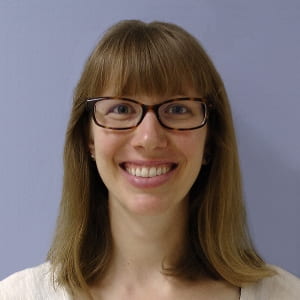“Remembering to be good members of the scientific community and to treat each other with respect is going to be the foundation that allows creativity to really blossom.”
 An interview with Rista Plate, PhD
An interview with Rista Plate, PhD
MindCORE Postdoctoral Fellow, UPenn
By: Michelle Johnson (2/3/20)
Was science always on your mind growing up?
I never expected I would go into science, actually. I thought when I graduated high school I’d be totally done with science and math. But I naively enrolled as a freshman psychology major not knowing that it was a science. Nevertheless, I was just so interested in the questions posed in psychology that it was the mechanism for getting me really excited about science and math and seeing those as important tools to be able to ask questions and gain greater understanding about the human mind.
What questions in psychology most excite you?
I’ve always been excited about questions related to the social world and which aspects of social information we pay attention to and how that in turn influences our behavior. I’m really interested in how children can come to understand the social world. Children are uniquely situated in the social world because they depend on other people for survival. Because of that, so many of their environments are characterized by having other people present and other people providing them not just with food and nourishment and shelter but also knowledge and information and opinions. Children have to figure out what’s being provided to them as knowledge, what is opinion, what are desires or beliefs. What of that information do they incorporate in their own choices and in how they view the world around them?
What initially drew you to this topic?
I come from a family of teachers; my mom was a teacher and various other family members are teachers. I grew up hearing stories about children in the classroom, which is a very social environment but also an environment in which you do a lot of learning. I’ve always been interested in those stories about how the social environment in the classroom was either helping children learn or actually interfering with children’s learning. I think that social information can have those two effects: it can be facilitating but also can be interfering in some ways. This really led me wonder about what it is about the aspects of social information that could have those two outcomes or what aspect it is about individuals that might lead them to be in helped or hindered by social input.
Is there anything you think people ought to know about the field that might not be obvious at first?
I think one thing I’ve been thinking about a lot lately is that social influence can be really sneaky, and the way that other people influence us could be coming into play in a really multifaceted and nuanced way that we might not be consciously privy to. I also think, similar to myself not being initially so interested in mathematical approaches to answering these questions, but then being really inspired and now, one of the things that I like most about my job—just remaining open to those experiences and being open to the different tools you might be able to use to answer the questions that you have.
What’s the best advice you’ve ever received?
The best advice I’ve ever gotten is something my grandma says to me every time I talk to her. It’s a big part of my family’s mantra, which is just “be good to each other”. I think that’s important to translate to our professional academic careers as well, whether it’s your lab mates or your colleagues who are coming from a different theoretical perspective or the students that you’re teaching. Remembering to be good members of the scientific community and to treat each other with respect is going to be the foundation that allows creativity to really blossom.
Click here to go back to the “Interviews with Scientists” page.
